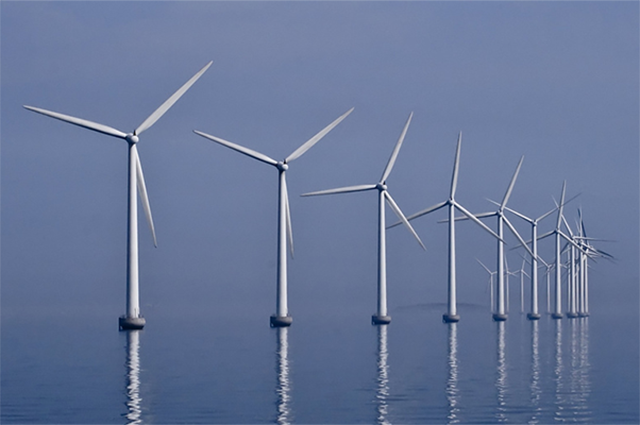Convergence in offshore wind energy research

A new report by the Partnership for Offshore Wind Energy Research (POWER-US)., “Reaching Convergence in U.S. Offshore Wind Energy Research: A Multidisciplinary Framework for Innovation,” is the result of a two-year initiative convened by the Massachusetts Research Partnership in Offshore Wind (MRP) -- a partnership of several academic and research institutions. According to the report, the U.S. could tap into a vast offshore wind energy resource and better steward its marine environment by galvanizing large-scale research and fostering public-private partnerships.
"Investing in job creation, research, education and infrastructure are essential to the future success of U.S. offshore wind,” said Patricia Haddad, Speaker Pro Tempore of the Massachusetts House of Representatives.
The initiative included nine major workshops and numerous discussions with industry leaders and university researchers across the U.S. and globally.
The POWER-US initiative and other efforts across the country are precursors to the collaborative approach needed to transform the wind energy industry. "POWER-US is an exemplary model of extraordinary cooperation among America’s leading academic institutions, which have banded together with eastern states and industry," said Walter Musial, Principal Engineer and Manager of Offshore Wind at the National Renewable Energy Laboratory.
The emphasis on “convergence” highlights the importance of a collaborative approach, bringing together expertise from a wide range of disciplines, including engineering, atmospheric science, logistics, economics, environmental science, and local communities and the marine industry, including fisheries.
“The Offshore Wind Research Framework reflects the type of interdisciplinary and comprehensive approach that is essential to advancing offshore wind over the next decade and beyond," said Stephen Pike, CEO of the Massachusetts Clean Energy Center.
Other themes explored by the report include balancing near-term deployment needs with innovation for the long-term; moving state of the art technology and knowledge into standard practice; long-term infrastructure planning; the elements of resilient design; and advancing the public interest in the context of U.S. energy needs, environmental obligations, and the economy.
A full press release can be read here.
Department:
Civil and Environmental Engineering